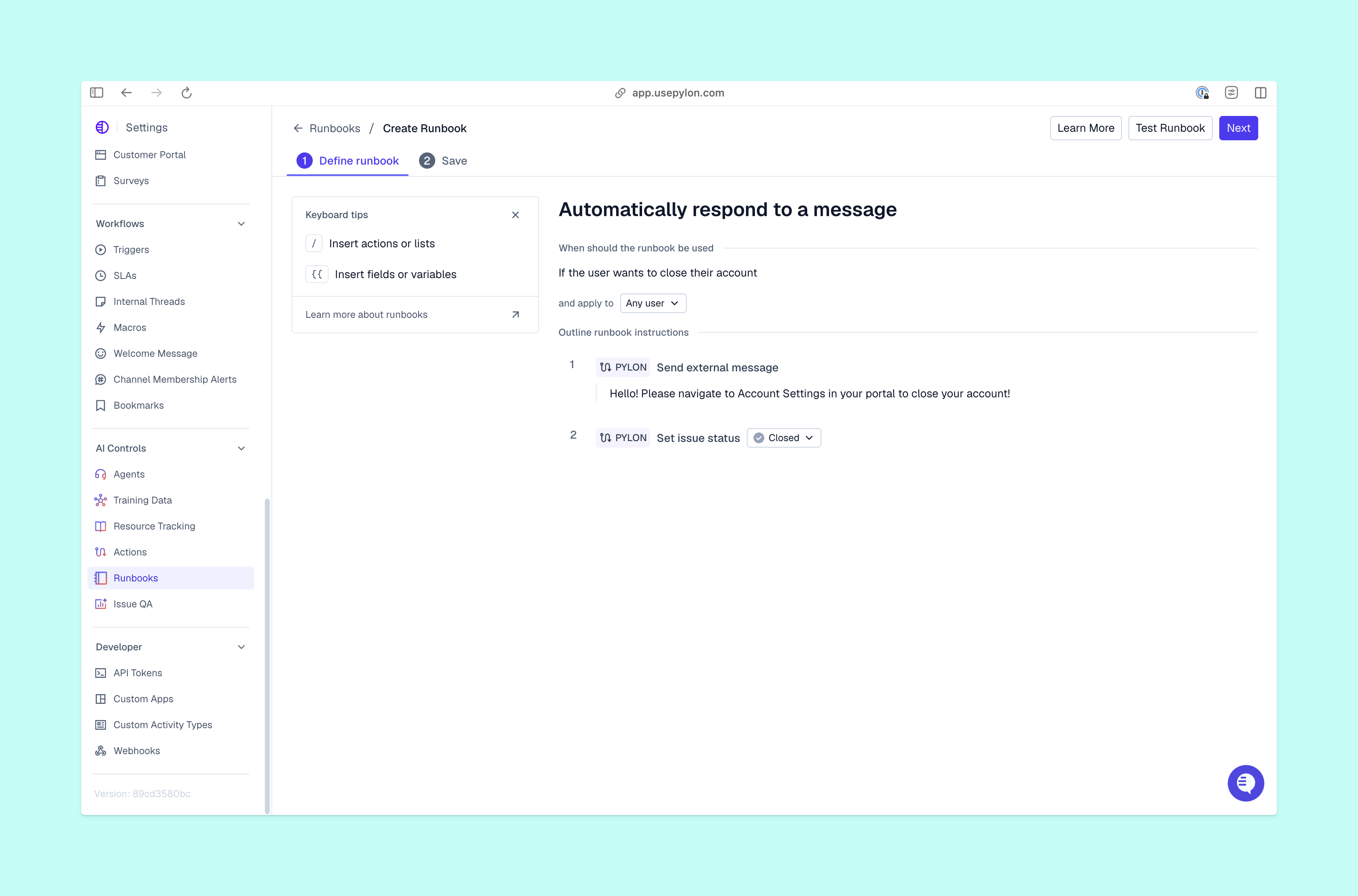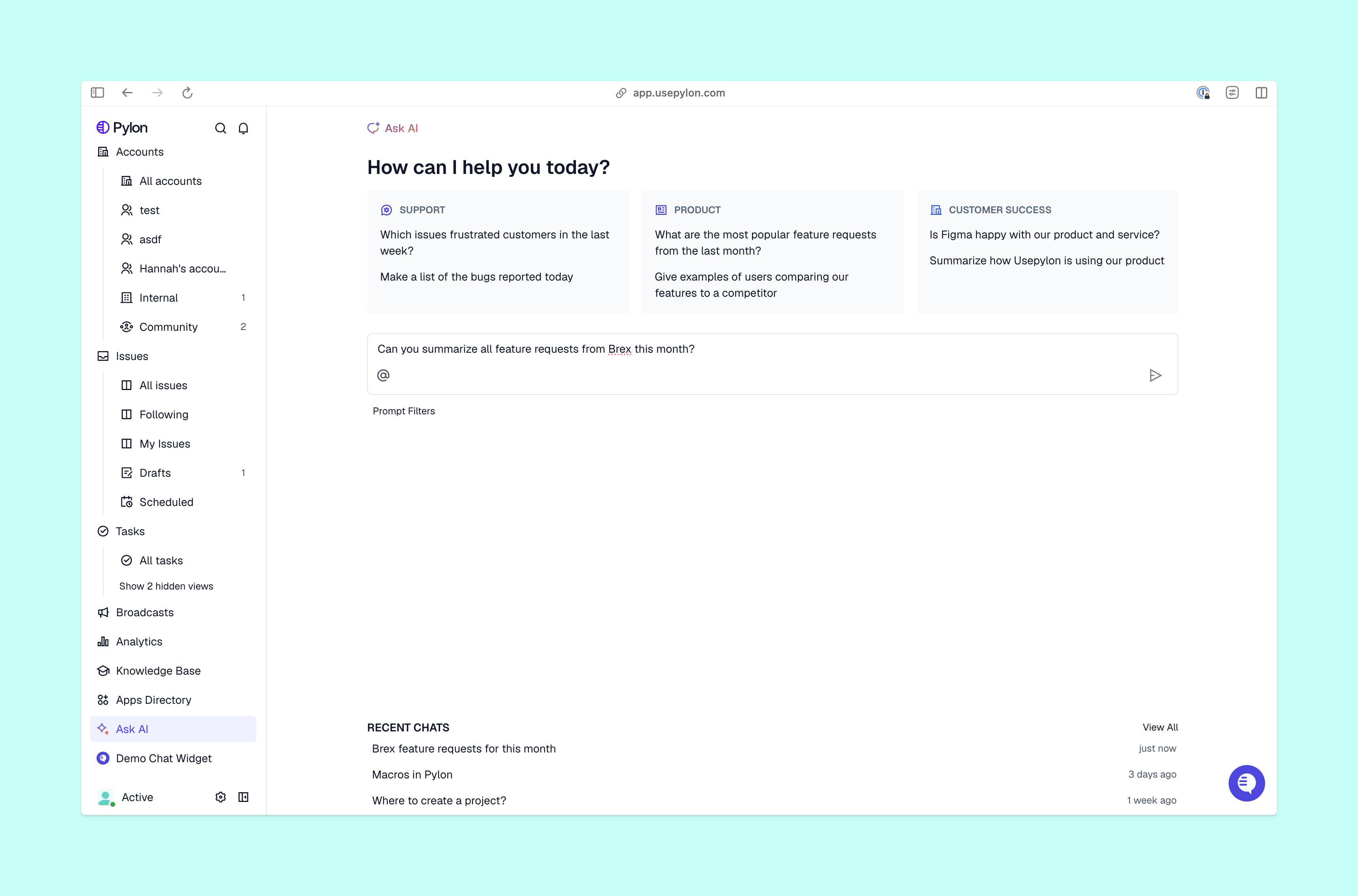AI Help Desks: Providing Efficient, 24/7 Customer Support
Discover how AI help desks boost efficiency and reduce costs. Learn about their features and benefits, and see how they provide quality customer support.
Help desks have long been the backbone of customer support. But traditional systems often struggle to keep pace with rising ticket volumes and changing customer expectations. Repetitive inquiries and fragmented communication can slow teams down and frustrate customers. This often results in higher operational costs and missed opportunities to strengthen customer relationships.
AI transforms how support desks operate by automating repetitive tasks and providing instant responses, while still allowing for personalized service. AI help desks are designed to lighten the load on human employees, helping reduce burnout and improve team retention. They also help you provide fast, quality assistance at scale.
This article explores what AI support desks are, how they work, the benefits they offer, and the trends shaping this technology’s future. We’ll also highlight some best practices for selecting AI help desk software and integrating it into your existing workflows.
What’s an AI Help Desk, and How Does It Work?
An artificial intelligence help desk uses technologies like natural language processing (NLP) and machine learning (ML) to automate and optimize customer support workflows. Instead of relying solely on human agents to categorize and respond to tickets, AI-powered customer support can reduce response times by 97%. It streamlines the process by reading customer queries, sorting them appropriately, suggesting accurate responses, and even resolving issues without any human intervention.
Here’s how that typically works:
- Ticket intake. AI scans tickets across email, chat, Slack, Teams, and other channels.
- Categorization and routing. NLP identifies intent and assigns tickets to the right teams, agents, or automated workflows.
- Response automation. For simple or common queries, AI pulls from knowledge bases and past customer interactions to generate accurate, context-aware replies.
- Constant refinement. ML helps the system improve over time by analyzing outcomes and adjusting responses accordingly.
Generative AI service desk platforms add another layer of functionality. These more complex systems can draft natural, conversational responses, create knowledge base content, and proactively suggest fixes.
Key Benefits of an AI-Powered Help Desk

AI-powered support desks combine automation and artificial intelligence to improve both customer and support team experiences. The resulting benefits make these help desks an essential investment for growing companies:
- Personalized support. AI tailors responses based on customer histories. Instead of generic replies, customers get contextually relevant answers that target their specific complaints. Personalized service drives higher customer satisfaction scores and stronger long-term loyalty.
- Reduced operational costs. Automation allows teams to handle repetitive, high-volume inquiries, like password resets and billing questions, without hiring more staff. This efficiency reduces overhead while delivering high-quality support.
- Improved scalability. As your organization grows and launches new products, ticket volumes may spike dramatically. AI help desk software adapts instantly, scaling support to handle the increased workload. This means you can provide consistent service quality even during peak demand.
- Proactive issue resolution. By analyzing patterns in ticket data, AI can predict common problems before they escalate. For example, if multiple customers report the same product bug, the system can flag the issue and push proactive fixes or communications. This reduces churn and enhances the overall customer experience.
- Empowered human support teams. Features like automated reply suggestions and recommended knowledge base articles reduce the time support teams spend searching for answers. This empowers your team to focus on complex, relationship-driven issues that require a personal touch.
Trends Shaping AI Help Desk Software
Gartner predicts that by 2030, 80% of customer interactions will be managed by AI. The technology is improving quickly, so most top AI help desk solutions are constantly evolving. The best AI customer support software already incorporates generative models and omnichannel integrations, changing what customers expect from a modern service desk.
Here are some of the top trends shaping AI help desk software:
- Generative AI integration. Generative models are used to create support articles and draft customer communications with natural, conversational language.
- Omnichannel support. Customers expect seamless interactions across various communication channels like Slack, Teams, Discord, email, and in-app chat. AI help desks like Pylon can unify these channels into one streamlined interface.
- Smarter knowledge bases. AI can continuously update FAQs and support articles based on ticket data, keeping resources relevant with less need for manual upkeep.
- Predictive analytics. Platforms increasingly use AI to forecast support demand, identify at-risk accounts, and prioritize critical tickets.
- AI-powered team coaching. Some customer support tools now monitor ticket quality and provide real-time feedback to support teams, improving performance and consistency.
- Conversational support. More organizations are blending customer support with customer success management to deliver unified services.
- Autonomous agents. AI is getting better at handling complete workflows from end to end, resolving issues from ticket intake through resolution.
Companies that adopt AI customer support early will not only see efficiency gains, they’ll also get a significant competitive advantage.
How to Choose the Best AI Help Desk Software
There are lots of AI help desks now. To choose the right one, take a careful look at your organization’s needs, budget, support goals, and existing infrastructure. You’ll want to consider:
- Scalability. Can the software handle spikes in ticket volume without disruption?
- Integration. Does it connect seamlessly with your existing project management tools and collaboration platforms?
- Customization. Can you train the AI on your organization’s proprietary data for more accurate responses?
- Budget and ROI. What cost savings can you expect when compared to traditional support models?
- Vendor reliability. Does the provider have a proven track record, robust support, and clear roadmap for product growth?
Integrating an AI Help Desk With Your Existing Tools

Successful AI adoption requires integration with your current support stack. This process can be a challenge — you might run into issues like overlapping platforms and staff resistance to change. It’s also important to evaluate whether a new platform works with your existing IT service management (ITSM) tools, so you can maintain just one system to handle customer issues.
Best practices for smooth integration include:
- Start with a pilot program on a single channel or workflow.
- Train support teams on how AI supplements their work, rather than replacing it.
- Use APIs and integrations to unify communication and ticketing tools.
- Gather feedback continuously to refine workflows and encourage adoption.
It’s easy to unify your customer support stack with Pylon’s AI help desk tools. You can seamlessly integrate platforms like Slack, Teams, Discord, and Salesforce to streamline customer interactions and keep teams aligned.
Bringing the Power of AI to Your Support Team
AI help desks are becoming the standard for customer success software. They can help you achieve faster resolutions, lower costs, quicker workflows, and higher satisfaction. At the same time, they allow your team to avoid repetitive tasks and focus on more meaningful work. By combining automation with human expertise, your company can scale support more effectively.
Pylon is the modern B2B support platform that offers true omnichannel support across Slack, Teams, email, chat, ticket forms, and more. Our AI Agents and Assistants automate busywork and reduce response times. Plus, with Account Intelligence that unifies scattered customer signals to calculate health scores and identify churn risk, we're built for customer success at scale.












